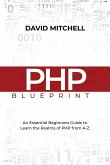The presence of web tracking technology has grown to a near-ubiquitous state as web pages contain a growing number of trackers, representing progressively more and more third parties, that employ an increasingly diverse set of tracking techniques. The current discourse surrounding web tracking has focused on the collection of browsing data and its use in the estimated $566B online advertising industry in the United States. As a result, existing privacy protections, both through tools like ad blockers and policy mechanisms like cookie consent banners, have been designed to provide a binary choice to users: either opt-in or optout of web tracking. To the user, this frames the issue of web tracking, and all derived use of data collected therein, as either inherently good or bad. However, this thesis demonstrates browsing data collected through web tracking can be used to both inflict privacy harm and to provide security benefits to users-providing evidence that the emphasis of our current privacy framework should be placed on data use, not data collection.
Hinweis: Dieser Artikel kann nur an eine deutsche Lieferadresse ausgeliefert werden.
Hinweis: Dieser Artikel kann nur an eine deutsche Lieferadresse ausgeliefert werden.








